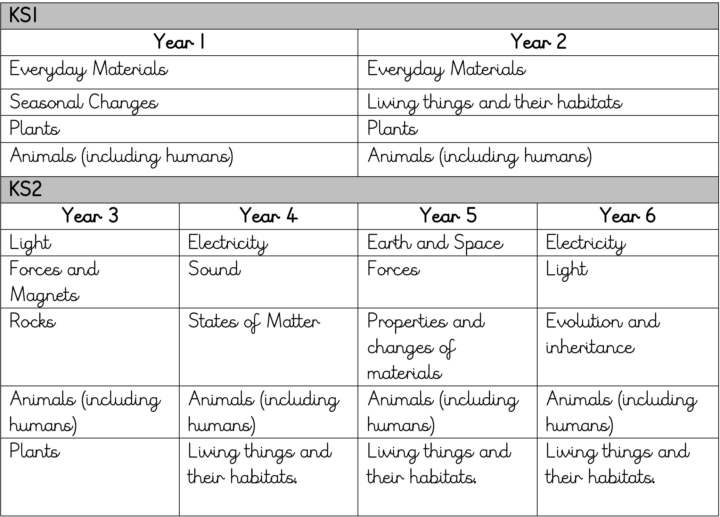Science
Our aim is to develop a love of science, to develop future scientists and teach them about the vast application and wonders of science in their everyday lives. Therefore, at Slade, the science curriculum has been designed around 3 key principles:
- To develop a deep understanding of scientific concepts from EYFS to Year 6, ensuring our children build schema (mental structures that guide new learning and behaviour).
- To emphasise enquiry, encouraging students to question, seek, find and predict.
- To embed ‘working scientifically’ into all lessons to ensure that they are both appropriate for the year group and are built on year upon year.
Substantive scientific knowledge has been carefully selected by Science leaders across our partnership and sequenced to ensure that: children have opportunities to revisit past learning and; that new content builds upon prior learning (this is underpinned by research into spaced retrieval). This careful sequencing allows our children to form strong connections between what they already know and new learning so knowledge can be built upon and easily recalled later. At Slade, we also ensure that the right knowledge is taught and have contextualised the curriculum for our children, ensuring that they leave Slade with knowledge that is essential for them to be successful scientists. The key knowledge to be taught is summarised into a knowledge organiser, which provides children with a resource to revise from and refer back to during the learning process.
As well as selecting and sequencing key knowledge, we also explicitly teach vocabulary and exploration of new words to increase the bank of words that our children use. We select key vocabulary for each Science topic and explore this (using our Slade Word Explorers) to grow the words our children know, give them the tools to further explore future words and support them in understanding the Science topic.
At the beginning of each lesson, children are posed a key question which is linked to the National Curriculum objectives. The children are then given the opportunity to ask questions, explore, investigate, grasp new concepts and where applicable, complete experiments.
We use pre and post assessments (Head Start Science) at the beginning and end of each Science topic. They allow us to identify what children have remembered about a topic, which teachers then use to plan subsequent lessons from. This ensures that any misconceptions and gaps in knowledge are addressed effectively.
Throughout each topic, retrieval practice and low stake quizzes are used to further embed the knowledge taught in our children’s long term memory. They revisit previously taught knowledge to strengthen what they remember, and then use this to link to new knowledge being taught.
High quality reading opportunities are planned into our Science curriculum to promote high standards of reading, aid with the teaching and delivery of lessons and enhance the learning by providing children with further opportunities to explore a topic. At Slade, we strive to promote a love of reading and foster children’s interest in the topics they are taught.
Children are also offered extra-curricular activities to develop their scientific understanding, give them opportunities to explore concepts above and beyond the national curriculum and to broaden their life experiences. These opportunities encourage them to be resilient and to allow them to have a deeper understanding of the world we live in. This is done through trips, Science clubs and Science Week.
Overview of the curriculum:

